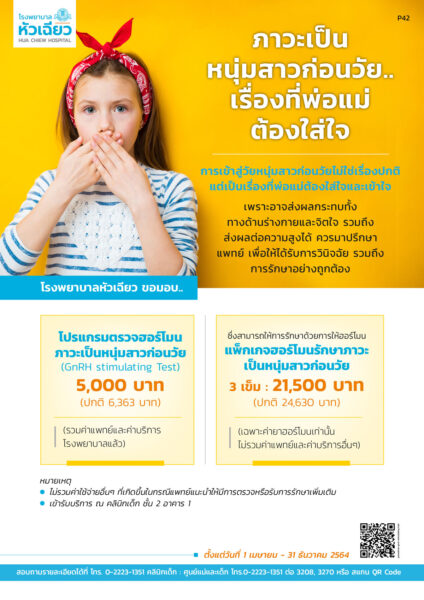
The first international conference to foster better lives for senior citizens in Thailand
NextGen Aging will examine the most pertinent questions related to aging society in Thailand, such as:
• How can Thailand, as the first developing country in the world to become a hyper-aged society, find solutions to the challenges of an aging era?
• Thailand 4.0, the Thai Government’s plan for social and economic development, emphasizes using technology to transform society on a multitude of levels, including improving the lives of the elderly. In the digital era, what role will technology play in enhancing the lives of seniors?
• How will the needs of Thailand’s growing senior population affect infrastructure development?
Bangkok – 7 November 2018: Kenan Institute Asia has partnered with University of North Carolina (UNC) at Chapel Hill’s Kenan-Flagler Business School and Gillings School of Global Public Health to organize “NextGen Aging – Shaping a Smart Future for an Aging Society,” the first international conference to raise awareness for how technology can transform the lives of senior citizens.
“Building off of our experience addressing the greatest public health, economic, and social development challenges in Thailand and the region throughout the last 22 years, along with our strong connections with both the public and private sectors, we are now applying our knowledge and expertise to help Thailand overcome the challenges of an aging society. According to a study by the Bank of Thailand, by 2031, Thailand is expected to become a ‘super-aged society’ and have the second highest proportion of seniors in ASEAN. Overcoming the economic and social development challenges stemming from our aging society will require a wide-range of multi-sector collaborations. At the same time, technology and innovation offers tremendous potential to improve the lives of seniors in a number of ways, including heath care and financial services. During this conference, our global and domestic partners will share their expertise in technology and health care as well as identify new ways to drive a better future for Thailand in the aging era,” explained Mr. Piyabutr Cholvijarn, President and Vice Chairman of Kenan Institute Asia.
A strong network of public and private sector partners, including the Thai Health Promotion Foundation, Krung Thai Bank (KTB), Government Savings Bank (GSB), Thonburi Healthcare Group, Bangkok Bank (BBL), and Muang Thai Life Assurance (MTL), are supporting the conference and committed to sharing their expertise to address the economic, social, public health, financial, and demographic challenges of an aging society.
Dr. Porametee Vimolsiri, Permanent Secretary of the Ministry of Social Development and Human Security, added that “the Government has made improving the lives of seniors part of the national agenda through its policies to provide greater income security for older persons, such as the social pension policy and the old age allowance. Furthermore, Thailand’s new social and economic development plan, Thailand 4.0, emphasizes the use of technology to transform old age across a multitude of levels and aspects. This conference comprehensively covers the essential elements and factors related to seniors by gathering public and private sector stakeholders committed to cultivating a healthy aging society that is transformative, innovative, and adaptive to technological advances.”
Ms. Porranee Poobrasert, Director of Health Promotion for Vulnerable Populations Section, Thai Health Promotion Foundation, said that “According to the Thai elderly population situation in 2017, there are 11.7 million elderly people, or about 16.9 percent of the whole population. It will be the first time that Thailand’s senior population outnumbers its young population. The population aged 60 years old and above will increase by one million people every year. Today’s pre-senior group, aged between 40 and 59, is still not prepared for their elderly futures, especially in terms of their health awareness and financial status. Because most of the elderly in Thailand suffer from at least one chronic condition, it is imperative that Thai society focus on preparing the next generation for quality aging in every dimension. For example, the low birth rate will cause labor shortages in the future. In addition, the younger generation will face the burden of paying for the high expenses needed to take care of their family members.”
In terms of technological advancements that are improving health care for an aging society, Dr. Boon Vanasin, Founder and Chairman of Thonburi Healthcare Group, said, “We are pleased to join this international conference and share our expertise and knowledge including our medical research with all participants. We will showcase our new health care technologies, such as Alexa Dream with Robots, smart wristbands, and the Jin application. Thonburi Healthcare Group also launched an innovative medical device called ABI (Ankle-Branchial Index) to monitor blood circulation levels. During the conference, participants will have the opportunity to use our Body Composition Analyzer, the Paro Robot that can assist seniors, and the Apple Watch Series 4 that can monitor one’s health status and send instant alerts and reports.”
Dr. Noel P. Greis, Director of the Center for Digital Enterprise and Innovation at UNC’s Kenan-Flagler Business School, detailed the potential of rapidly developing technology to impact the future of aging. “Today’s innovations have the potential to change the aging experience—to eliminate constraints that seniors, or their caregivers, confront in daily living,” explained Dr. Greis. “Every day, products are being introduced that enable seniors to stay connected with family and friends, to stay safe in their homes and communities, and to stay healthy and well. New voice communication technologies, combined with at-home monitoring systems, are not only enabling seniors to age-in-place but reducing costs to society. Digital solutions that allow remote tracking of vital health information are also reducing health care costs and allowing seniors to stay at home longer.”
Mr. Sara Lamsam, President and Chief Executive Officer of Muang Thai Life Assurance Public Company Limited, said, “Our company has adapted and developed a customer-centric business strategy that we call our ‘Customer @ the Heart’ policy. We use this outside-in, customer-centric point of view to develop innovative life insurance services that reach the true needs and expectations of our customers, especially seniors. For instance, our MTL Global Connect services give our customers access to treatments in hospitals around the world. Our Health at Home services provide care for the sick and elderly at their home from medical experts aided by the use of real-time analytics to help families of patients track their loved one’s care at any time.”






